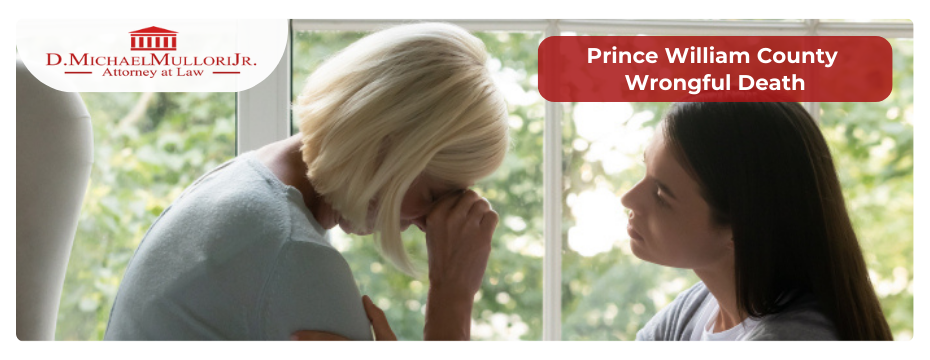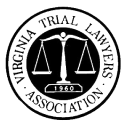
Did you recently lose someone you love in an accident that should never have happened? As you mourn your loved one’s death, you might face new financial strains caused by your loss. Things like final medical expenses, funeral costs, and lost income can add up quickly, compounding your grief with worry.
At times like these, it can feel like nothing could ever make things right again, and money certainly isn’t a magic fix that will undo the tragedy you suffered. But pursuing a wrongful death suit and demanding compensation from the at-fault party gives you the opportunity to hold them accountable for what they did. Full and fair compensation can also ease your unexpected financial burdens in this painful situation.
Unfortunately, being entitled to compensation and actually securing it are two different things altogether. This is especially the case when the at-fault party and their insurer dispute liability, engage in hardball negotiating tactics, and throw up barriers in your path to justice. That’s where an experienced wrongful death lawyer like D. Michael Mullori, Jr., Attorney at Law comes in.
Mike Mullori has been standing up for Virginia victims and their families since 1999. He’s the kind of attorney who will sit with you, listen closely to your story, and explain your legal options without the jargon. Mike is known for being straight-talking, ethical, and always ready to fight for his clients, even when that means going to trial.
Ready to talk to a wrongful death lawyer in Prince William County about your options, all without upfront cost or obligation? Then contact Mike Mullori or call (703) 762-2142 right away for a free consultation. Our office is conveniently located at 2500 Hunter Place, Suite 102. Woodbridge, VA.
What Must I Prove in a Prince William County Wrongful Death Case?
To win a wrongful death case in Virginia, you must demonstrate that another party’s wrongful behavior directly led to the death of your loved one. In other words, had it not been for someone else’s irresponsible action or inaction, your loved one might still be alive today.
Establishing this might require the following types of evidence:
- Medical Records – Medical documentation such as coroner’s inquests, lab reports, and prescriptions can establish your loved one’s cause of death and link it to the incident in question.
- Accident Scene Reports – Official records like accident reports, police logs, and private incident reports can provide crucial evidence as to what happened and who may have been to blame.
- Witness Statements – People who saw the incident unfold can provide valuable insights and confirm the sequence of events leading to your loved one’s fatal injury.
- Expert Testimony – Experts like accident reconstruction specialists or medical providers could provide professional analyses and opinions based on the available evidence.
- Photographic and Video Evidence – Photographs from the accident scene, surveillance or cell phone camera footage, or even digital evidence from social media could also support your case.
What Compensation Is Recoverable in a Prince William County Wrongful Death Claim?
When you file a wrongful death claim in Virginia, you’re asking the at-fault party or their insurer to pay you financial compensation for the harm they caused you.
Depending on the specifics, a wrongful death law firm can help you seek money for the following:
- Emotional Loss – The sorrow and mental anguish you endure due to the loss of your loved one’s companionship, comfort, guidance, advice, and other intangible benefits they provided.
- Economic Loss – The loss of income that the decedent would have reasonably been expected to earn had they survived, as well as the loss of services, protection, care, and assistance they would have provided.
- Medical Expenses – Any costs related to the care, treatment, or hospitalization of your loved one due to the injury that ultimately resulted in their death.
- Funeral Expenses – Reasonable funeral and burial costs associated with your loved one’s passing.
- Punitive Damages – If the at-fault party’s conduct was “willful,” “wanton,” or exhibited a “conscious disregard for the safety of others,” the court might award you punitive damages. These damages are meant to punish the defendant and deter similar behavior in the future
Who Can File a Wrongful Death Lawsuit in Prince William County?
Under Virginia law, the only people eligible to bring a wrongful death lawsuit are:
- Personal Representative – In most cases, the deceased person’s personal representative has the authority to file a wrongful death lawsuit. This is the person responsible for administering the deceased’s estate, often called an executor. If the decedent did not name one in their will, the courts can appoint one.
- Natural Mother – In the case of wrongful fetal death, the natural mother of the fetus may bring a wrongful death action against the responsible party.
- Administrator, Guardian, or Personal Representative of the Natural Mother – If the natural mother is deceased or incapacitated, then the administrator of the natural mother’s estate, her guardian, or her personal representative can file the wrongful death suit.
While these parties have the sole right to file a Virginia wrongful death claim, any money from such a claim goes to the deceased person’s statutory beneficiaries.
These beneficiaries can include:
- Surviving spouses, children, or grandchildren
- Surviving parents and siblings
- Household relatives who were financially dependent on the deceased
- Other surviving relatives entitled to inherit under Virginia’s intestacy laws, which govern how estate assets are distributed when someone dies without a will
How Are Wrongful Death Settlements Paid Out in Prince William County?
Typically, when a wrongful death suit ends in a settlement, the at-fault party or their insurer agrees to pay the deceased’s estate a set amount either as a single, lump-sum payment or as a series of payments made over an agreed-upon timeline (an arrangement known as a structured settlement).
It’s worth noting that this payment usually doesn’t go immediately to surviving family members or beneficiaries. Instead, the check typically gets deposited into an escrow account managed by the personal representative or attorney handling the wrongful death claim. From there, this money goes toward settling any debts or claims against the deceased’s estate, such as outstanding medical bills or legal fees.
After the deceased’s final debts are paid, the personal representative or their attorney distributes the remaining wrongful death funds among rightful beneficiaries according to Virginia law.




